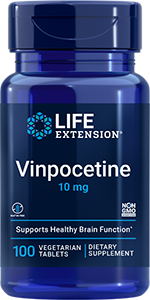Lower diabetes risk found in men with higher omega-3 polyunsaturated fatty acid levels
Tuesday, September 24, 2013. An article published online on September 11, 2013 in the journal Diabetes Care reports an association between higher serum levels of omega-3 polyunsaturated fatty acids and a reduction in the risk of type 2 diabetes.
Researchers at the University of Eastern Finland's Institute of Public Health in Kuopio evaluated data from 2,212 men who participated in the Kuopio Ischaemic Heart Disease Risk Factor Study. The subjects were between 42 and 60 years of age and were free of type 2 diabetes upon enrollment during 1984-1989. Blood samples were analyzed for the omega-3 fatty acids eicosapentaenoic acid (EPA), docosapentaenoic acid (DPA), docosahexaenoic acid (DHA) and alpha-linolenic acid (ALA), and hair samples were analyzed for mercury, a common contaminant of fish that may modify the effect of omega-3 fatty acids on diabetes risk by increasing insulin resistance. The presence of type 2 diabetes was ascertained by fasting glucose and glucose tolerance testing conducted at four, eleven and twenty years after enrollment, and by examination of medical records.
Over a 19.3 year average follow-up, type 2 diabetes was diagnosed in 422 subjects. Men whose combined serum EPA, DPA and DHA were among the top 25% of participants had a risk of diabetes that was one-third lower than those whose levels were among the lowest fourth. When individual long-chain fatty acids were analyzed, DHA and DPA emerged as protective against type 2 diabetes. No effect mercury on diabetes risk was found.
According to authors Jyrki K. Virtanen, PhD and colleagues, omega-3 polyunsaturated fatty acids' protective effect against diabetes could be due to their influence on adiposity, high blood pressure and disordered lipids, which are risk factors for the disease. They additionally have an anti-inflammatory effect and suppress gene expression involved in the metabolism of lipids. Furthermore, those who regularly eat fish may consume lower amounts of red meat, thereby reducing the intake of saturated fatty acids that are associated with an increased risk of impaired insulin sensitivity when consumed in excess. "Further research from diverse study populations and with objective biomarkers of exposure is needed to elucidate the role of the omega-3 polyunsaturated fatty acids on the risk of type 2 diabetes," the authors conclude. |

|

|
|
With nearly 40 scientific studies published on the wide-ranging benefits of tart cherries, scientists are now discovering important new health applications for this American fruit. Tart cherries are packed with unique beneficial compounds that have been shown to block COX-1 and COX-2 enzymes, as well as maintain muscle function and promote rapid muscle recovery after exercise, bringing faster relief from the minor aches, discomfort, and stiffness that can follow everyday muscle exertion.
Anthocyanins are powerful molecules that provide the dark pigmentation to blueberries, raspberries, and bilberries. In addition to being potent antioxidants, anthocyanins have been extensively studied for their numerous health benefits that include heart, cellular, and cognitive health.
What has drawn the attention of scientists is the fact that tart cherries not only contain a higher content of anthocyanins than other fruits, they also contain unique anthocyanins not found in other berries. To allow members to take full advantage of these discoveries, Life Extension® now offers Tart Cherry Extract, a 100% natural supplement that opens the door to the remarkable benefits of continued physical activity—at any age. |
|

|
|
Vinpocetine is derived from vincamine, the major indole alkaloid of the periwinkle plant. No toxic effects have been seen from vinpocetine use at levels far above those recommended for this product.
When taken orally, vinpocetine is easily absorbed and it can:
- Improve blood supply to the brain
- Increase oxygen and glucose use by the brain
- Maintain optimal energy of healthy brains
- Maintain normal coagulation of blood
- Maintain healthy levels of some neurotransmitters
- Promote healthy attention, memory and concentration
- Exerts an inhibitory effect on NF-kB-dependent inflammation
|
|
|

